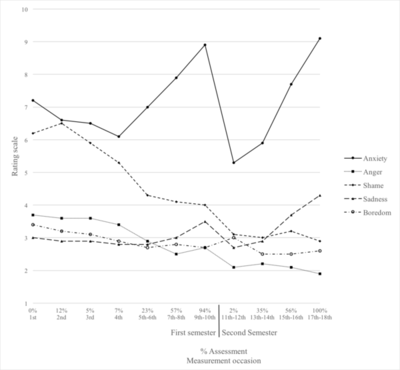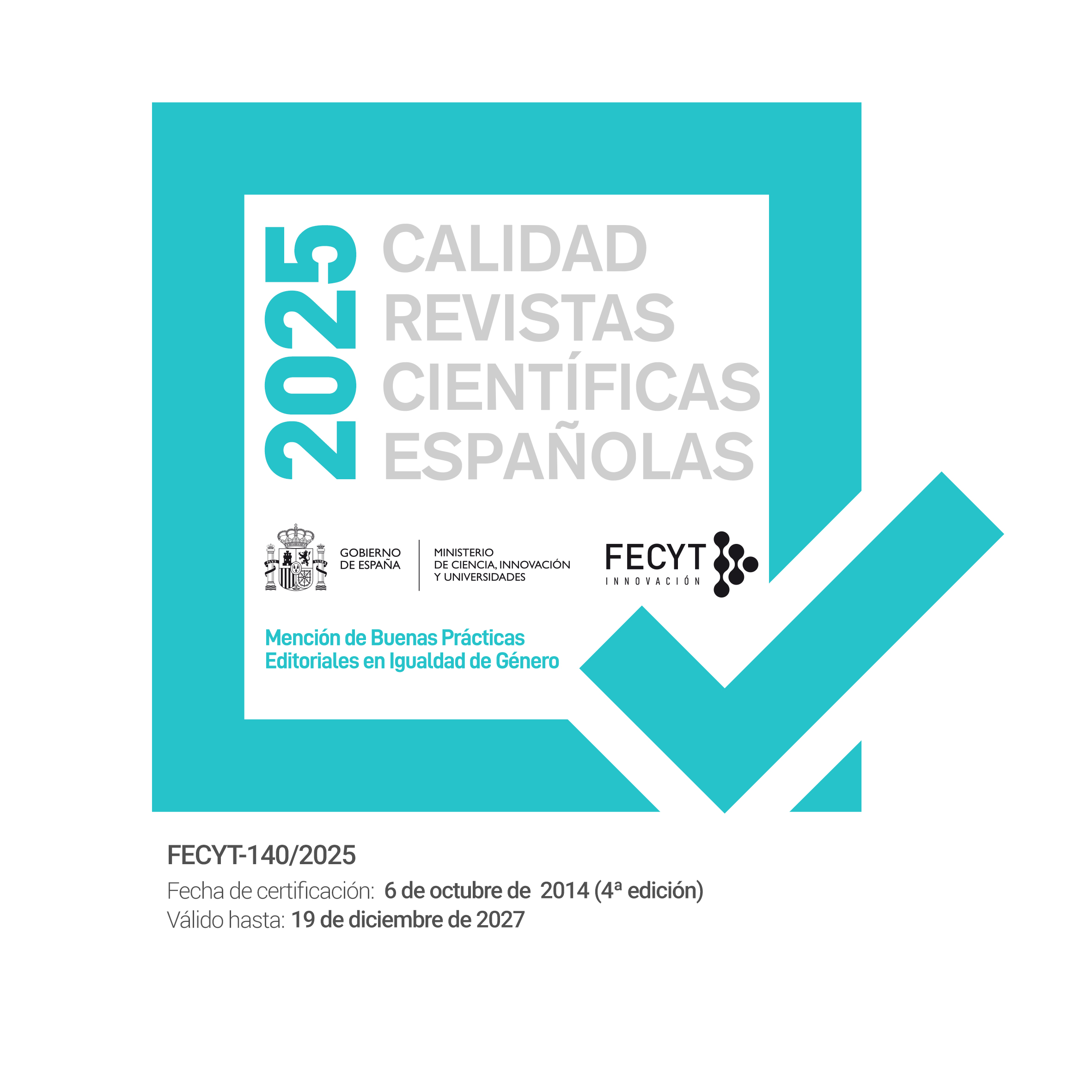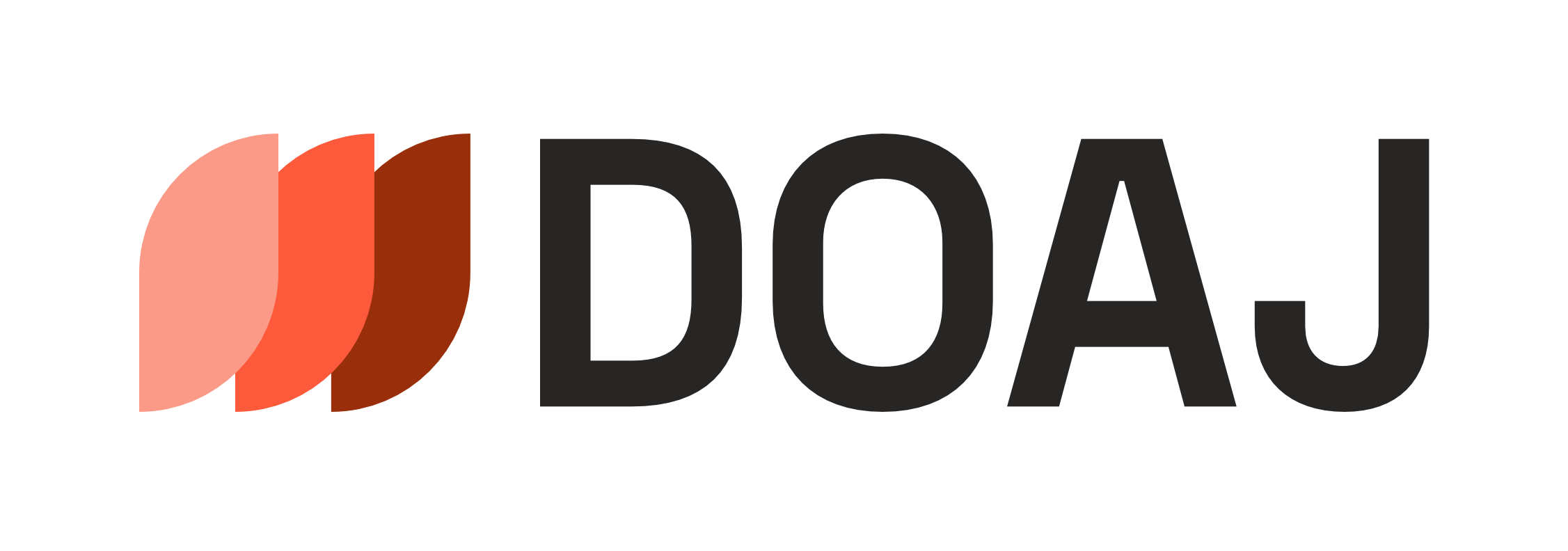Transición a educación superior y evaluación: un estudio longitudinal anual
DOI:
https://doi.org/10.5944/educxx1.29870Palabras clave:
transición a educación superior, adaptación a educación superior, evaluación en clase, autorregulación del aprendizaje, emoción y motivaciónResumen
La formación universitaria exige a los estudiantes ser más autónomos y cambiar a un nuevo entorno de aprendizaje. Esta es una de las razones por la que muchos estudiantes viven una experiencia desafiante en esta etapa y hay altas tasas de abandono en el primer año de estudios. Distintas investigaciones han señalado variables académicas, sociodemográficas, psicológicas y socioculturales que pueden explicar la adaptación a este entorno. En estas, se ha indicado la importancia de hacer más estudios longitudinales. En este estudio longitudinal, 148 participantes rellenaron un diario de aprendizaje/encuesta semanal y bisemanalmente durante su primer año de universidad, reportando su satisfacción, los retos percibidos, y la evolución de sus emociones, motivación y estrategias de aprendizaje. Se extraen tres conclusiones principales de los datos. Primero, los niveles de satisfacción y los retos reportados fluctuaron a lo largo del curso, mostrando distintas fases por las que pasan los estudiantes. Segundo, las actividades de evaluación (e.g., exámenes) fueron el principal factor que producía una reducción de valores positivos y un incremento de valores negativos en la valencia emocional. Tercero, los participantes reportaron estrategias de adquisición y procesamiento de la información (e.g., elaborar resúmenes), en contraste con un bajo reporte de estrategias de autorregulación, con una posible influencia de las prácticas de evaluación. El artículo finaliza recomendando algunas acciones para mejorar la transición a la educación superior, por ejemplo, con actividades de evaluación más formativas y el diseño de programas de intervención para ayudar al alumnado a organizar su actividad en el nuevo entorno.
Descargas
Citas
American Psychological Association. (n.d.). Valence. In APA dictionary of psychology. https://dictionary.apa.org/valence
Brahm, T., Jenert, T., & Wagner, D. (2017). The crucial first year: A longitudinal study of students’ motivational development at a Swiss Business School. Higher Education, 73, 459–478. https://doi.org/10.1007/s10734-016-0095-8
Christie, H., Barron, P., & D’Annunzio-Green, N. (2013). Direct entrants in transition: becoming independent learners. Studies in Higher Education, 38(4), 623–637. https://doi.org/10.1080/03075079.2011.588326
Christie, H., Tett, L., Cree, V., McCune, V., & Hounsell., J. (2008). ‘A real rollercoaster of confidence and emotions’: Learning to be a university student. Studies in Higher Education, 33(5), 567–581. https://doi.org/10.1080/03075070802373040
Cliff, A. F. (2000). Dissonance in first-year students’ reflections on their learning. European Journal of Psychology of Education, 15(49). https://doi.org/10.1007/BF03173166
Coertjens, L., Brahm, T., Trautwein, C., & Lindblom-Ylänne, S. (2017). Students’ transition into higher education from an international perspective. Higher Education, 79(3), 357–369. https://doi.org/10.1007/s10734-016-0092-y
Coertjens, L., Donche, V., De Maeyer, S., van Daal, T., & Van Petegem, P. (2017). The growth trend in learning strategies during the transition from secondary to higher education in Flanders. Higher Education, 73(3), 499–518. https://doi.org/10.1007/s10734-016-0093-x
Delaney, A. M. (2004). Ideas to enhance higher education’s impact on graduates’ lives: Alumni recommendations. Tertiary Education and Management, 10(2), 89–105. https://doi.org/10.1023/B:TEAM.0000023839.21429.63
Deslauriers, L., McCarty, L. S., Miller, K., Callaghan, K., & Kestin, G. (2019). Measuring actual learning versus feeling of learning in response to being actively engaged in the classroom. Proceedings of the National Academy of Sciences, 116(39), 19251–19257. https://doi.org/10.1073/pnas.1821936116
Ellison, L., & Jones, D. (2019). First year law students: The impact of assessment type on attainment. Assessment & Evaluation in Higher Education, 44(2), 283–293. https://doi.org/10.1080/02602938.2018.1496398
Estévez, I., Rodríguez, S., Valle, A., Regueiro, B., & Piñeiro, I. (2016). Incidencia de las metas académicas del alumnado de secundaria en su gestión motivacional. Aula Abierta, 44(2), 83–90. https://doi.org/10.1016/j.aula.2016.03.001
Gale, T., & Parker, S. (2014). Navigating change: a typology of student transition in higher education. Studies in Higher Education, 39(1), 734-753. https://doi.org/10.1080/03075079.2012.721351
Harvey, L., Drew, S., & Smith, M. (2006). The first-year experience: a review of literature for the Higher Education Academy. The Higher Education Academy.
Hillman, K. (2005). The first year experience: The transition from secondary school to university and TAFE in Australia. Australian Council for Education Research.
Kantanis, T. (2000). The role of social transition in students’ adjustment to the first-year of university. Journal of Institutional Research, 9(1), 100–110. https://doi.org/10.4236/psych.2017.88081
Koivuniemi, M., Panadero, E., Malmberg, J., & Järvelä, S. (2017). Higher education students’ learning challenges and regulatory skills in different learning situations [Desafíos de aprendizaje y habilidades de regulación en distintas situaciones de aprendizaje en estudiantes de educación superior]. Infancia y Aprendizaje, 40(1), 19–55. https://doi.org/10.1080/02103702.2016.1272874
Krause, K. L., & Coates, H. (2008). Students’ engagement in first-year university. Assessment & Evaluation in Higher Education, 33(5), 493–505. https://doi.org/10.1080/02602930701698892
Kyndt, E., Donche, V., Coertjens, L., van Daal, T., Gijbels, D., & Van Petegem, P. (2019). Does self-efficacy contribute to the development of students’ motivation across the transition from secondary to higher education? European Journal of Psychology of Education, 34(2), 457–478. https://doi.org/10.1007/s10212-018-0389-6
Lipnevich, A. A., Panadero, E., Gjicali, K., & Fraile, J. (2021). What’s on the syllabus? An analysis of assessment criteria in first year courses across US and Spanish universities. Educational Assessment, Evaluation and Accountability, 33, 675–699. https://doi.org/10.1007/s11092-021-09357-9
Lowe, H., & Cook, A. (2003). Mind the gap: Are students prepared for higher education? Journal of Further and Higher Education, 27(1), 53–76. https://doi.org/10.1080/03098770305629
Moreau, M. P., & Leathwood, C. (2006). Balancing paid work and studies: Working (-class) students in higher education. Studies in Higher Education, 31(1), 23–42. https://doi.org/10.1080/03075070500340135
Niculescu, A. (2015). Hidden in plain sight: Capturing freshmen emotional experiences and their effects on performance at university. Maastricht University.
Noyes, D., Donche, V., Coertjens, L., & Van Petegem, P. (2017). Transitions to higher education: Moving beyond quantity. In E. Kyndt, V. Donche, K. Trigwell, & S. Lindblom-Ylänne (Eds.), Higher Education transitions. Theory and research (pp. 3–12). Routledge.
Pekrun, R., Goetz, T., Titz, W., & Perry, R. P. (2002). Academic emotions in students’ self-regulated learning and achievement: A program of qualitative and quantitative research. Educational Psychologist, 37(2), 91–105. https://doi.org/10.1207/S15326985EP3702_4
Quinn, J. (2010). Learning communities and imagined social capital: Learning to belong. Continuum.
Richardson, M., Abraham, C., & Bond, R. (2012). Psychological correlates of university students’ academic performance: A systematic review and meta-analysis. Psychological Bulletin, 138(2), 353–387. https://doi.org/10.1037/a0026838
Rovers, S. F. E., Stalmeijer, R. E., van Merriënboer, J. J. G., Savelberg, H. H. C. M., & de Bruin, A. B. H. (2018). How and why do students use learning strategies? A mixed methods study on learning strategies and desirable difficulties with effective strategy users. Frontiers in Psychology, 9, 2501. https://doi.org/10.3389/fpsyg.2018.02501
Samuelstuen, M. S., & Bråten, I. (2007). Examining the validity of self-reports on scales measuring students’ strategic processing. British Journal of Educational Psychology, 77(2), 351–378. https://doi.org/10.1348/000709906X106147
Smith, J. S., & Wertlieb, E. C. (2005). Do first-year college students’ expectations align with their first-year experiences? NASPA Journal, 42(2), 153–174.
Stupnisky, R. H., Perry, R. P., Hall, N. C., & Guay, F. (2012). Examining perceived control level and instability as predictors of first-year college students’ academic achievement. Contemporary Educational Psychology, 37(2), 81–90. https://doi.org/10.1016/J.CEDPSYCH.2012.01.001
Tam, M. (2002). University impact on student growth: A quality measure. Journal of Higher Education Policy and Management, 24(2), 211–218. https://doi.org/10.1080/1360080022000013527
Thomas, L. (2012). Building student engagement and belonging in Higher Education at a time of change: a summary of findings and recommendations from the What Works? Student Retention & Success programme. Higher Education Academy.
Thomas, L., & Quinn, J. (2007). First generation entry into higher education: An international perspective. Open University Press.
Thomas, T., Jacobs, D., Hurley, L., Martin, J., Maslyuk, S., Lyall, M., & Ryan, M. (2019). Students’ perspectives of early assessment tasks in their first-year at university. Assessment & Evaluation in Higher Education, 44(3), 398–414. https://doi.org/10.1080/02602938.2018.1513992
Tinto, V. (2012). Completing college: Rethinking institutional action. The University of Chicago Press.
van Herpen, S. G. A., Meeuwisse, M., Hofman, W. H. A., Severiens, S. E., & Arends, L. R. (2017). Early predictors of first-year academic success at university: pre-university effort, pre-university self-efficacy, and pre-university reasons for attending university. Educational Research and Evaluation, 23(1–2), 52–72. https://doi.org/10.1080/13803611.2017.1301261
Wagner, D., & Brahm, T. (2017). Fear of academic failure as a self-fulfilling prophecy. In E. Kyndt, V. Donche, K. Trigwell, & S. Lindblom-Ylänne (Eds.), Higher Education transitions. Theory and research (pp. 13–30). Routledge.
Yorke, M., & Longden, B. (2007). The first-year experience in higher education in the UK: Final report. Higher Education Academy.
Zhou, J., Zhao, K., & Dawson, P. (2020). How first-year students perceive and experience assessment of academic literacies. Assessment & Evaluation in Higher Education, 45(2), 266–278. https://doi.org/10.1080/02602938.2019.1637513

Descargas
Publicado
Cómo citar
Número
Sección
Licencia
Derechos de autor 2022 Ernesto Panadero, Juan Fraile, Daniel García-Pérez

Esta obra está bajo una licencia internacional Creative Commons Atribución-NoComercial 4.0.
La revista Educación XX1 se publica bajo licencia Creative Commons Reconocimiento-NoComerciaL 4.0 (CC BY-NC 4.0). Se permite la generación de obras derivadas siempre que no se haga un uso comercial. Tampoco se puede utilizar la obra original con finalidades comerciales.










